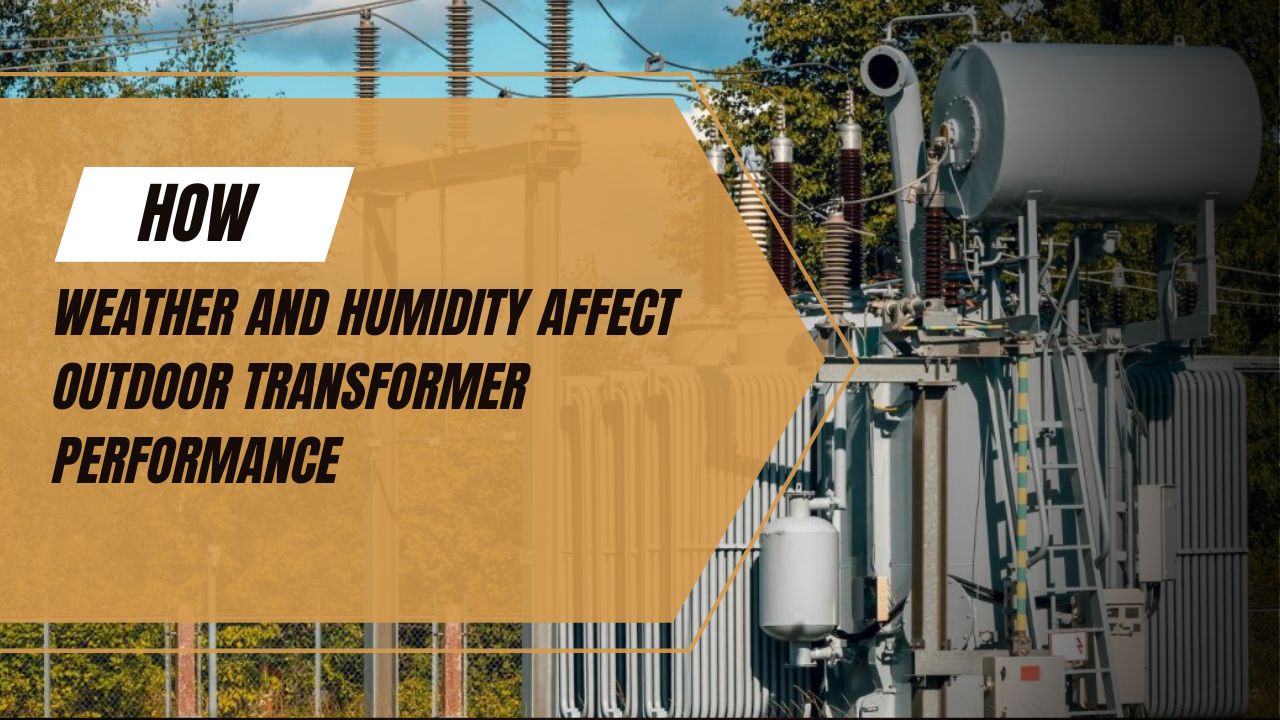

Outdoor transformers handle everything the environment throws at them, including heat waves, monsoon dampness, salty wind, and dust storms. Over time, exposure like that changes how a unit behaves.
Not all problems appear suddenly. Sometimes it starts with a slight shift in oil condition, or a minor drop in insulation resistance.
The bigger challenge is figuring out which weather-related factor is affecting performance before the system reaches a failure point. Every climate asks something different of your transformer, especially if it’s built to handle high loads or continuous cycles.
Outdoor air holds water, especially in coastal or tropical zones. That moisture finds ways into even the tightest transformer seals over time. It collects in oil, settles in insulation, and reacts with internal paper and pressboard.
When moisture levels rise, dielectric strength begins to drop. The system becomes more sensitive to surges, and partial discharge activity increases. In older transformers, this sometimes appears as bubbling or foaming in the oil during a heat cycle. Reliable transformers manufacturers always consider these environmental factors while designing and sealing their units to minimize long-term moisture intrusion.
A fresh unit can handle rain well. But over time, gaskets harden, flanges relax, and small entry points begin to form. Once that happens, water gets in slowly, sometimes unnoticed for months.
That’s when corrosion starts to spread from inside the tank walls or around bolted parts. Tap changers and terminal boxes are especially vulnerable. Without intervention, it only takes one prolonged wet season to shorten insulation life significantly.
Hot weather affects more than just external surfaces. It directly impacts how oil flows through windings, and how fast that oil begins to degrade chemically.
When ambient temperatures stay high, the unit’s cooling system has to work harder to stabilize internal heat.
In some areas, oil temperatures stay elevated even after the load drops, which increases oxidation and lowers the flash point. Insulation exposed to this cycle consistently begins to harden, reducing its flexibility and long-term reliability. A trusted transformer manufacturing company always accounts for these thermal stresses while designing systems to ensure durability and efficient heat management.
In open environments, dirt and residue gather fast. Salt sticks. Soot clings. Dust packs tight in radiator fins.
You’ll usually notice:
> Small flash marks on bushings
> Rust forming at bolts
> Cooling performance dropping
> Fine tracks near terminals
> Switching feels less stable
A quick wash or light coating helps, but only if done before buildup turns into a bigger problem.
Outdoor units deal with temperature swings all the time. Cold mornings. Hot afternoons. That stretch and squeeze adds up.
Bolts shift slightly. Gaskets lose shape. Core supports ease off a little with each cycle.
Over weeks or months, these small movements change how the transformer behaves.
Oil moves differently. Clamps hold less tension. Pressure valves start venting more often. Nothing breaks outright, but the unit starts feeling less steady under load.
Outdoor transformers work hard under variable conditions. Whether it's constant humidity or seasonal heat, the environment slowly shapes how the unit performs.
From our experience with repairs, overhauls, and custom design projects, we’ve seen how long-term reliability often depends on anticipating how the weather behaves—before the unit starts reacting to it.
Our outdoor-rated distribution transformers, for example, use moisture-resistant insulation, tested seals, and robust terminal protection as part of the design,not as an afterthought.